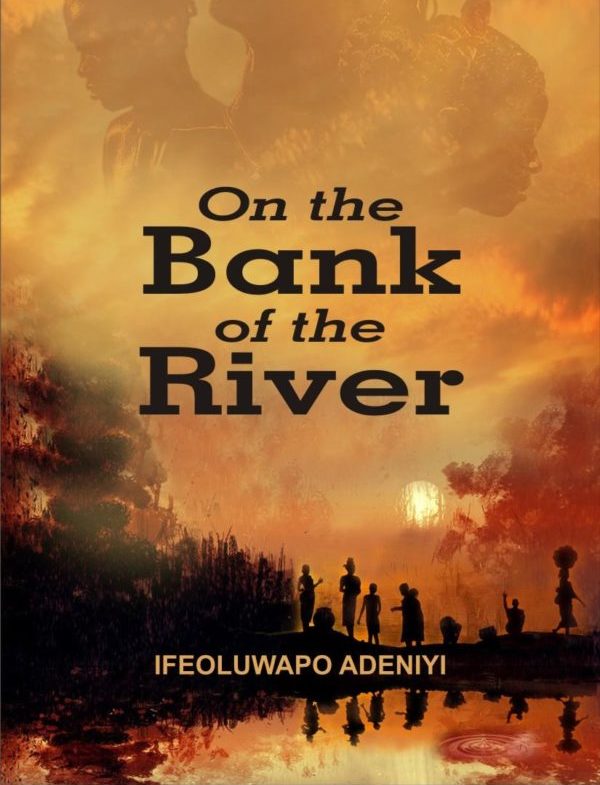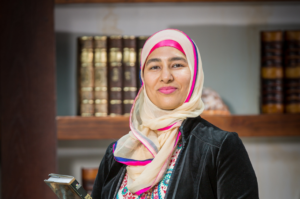In On the Bank of the River, Ifeoluwapo Adeniyi uses the experience of childhood to articulate important ideas about parenting, girl-child education, rural-urban encounters, and intergenerational tensions in Nigeria.
The protagonist of the novel, Enitan, realizes that the constant sorrow that has become her mother’s personality is a product of a failed love affair, which incidentally has a direct link to her birth. Growing up in the reality of an absent father and in the shadow of a bitter mother, Enitan runs into the comforting embrace of her mother’s younger sister, Jibike, only to find out later that the same woman who has shown her the pleasurable side of love is at the same time behind her mother’s sadness.
Refusing to relapse into indifference and disappointment, Enitan embarks on a journey of self-discovery. At once circumstantial and tangible, Enitan’s self-search takes her into the past and back again. With keen narrative insight and mature rhythm, the novel takes the reader through some of the most intriguing incidents yet written in the trope of love affair and parent-child relationship in Nigerian literature. What comes out most trenchantly from Enitan’s epiphanies from her search is the paradox of love. Enitan realizes that in the unchecked life of youth love can become an incurable malady as well as a humanizing force. Love can craft some of the finest moments of compassion and yet can be the basis of anomy and ruthlessness. Enitan gradually forgives her mother, Asake, and finds in the poor woman’s bitterness the unarticulated calmness of love.
The novel’s title, On the Bank of the River, calls attention to the central motif of the story. It signifies preparation, adventure, uncertainty and also meditation. All of these significations and more can be argued for in the novel. However, one signification of this title which speaks more accurately to the central theme of the story requires an understanding of the tradition of the river imagery in writing women’s experiences in Nigeria. The first novel by a Nigerian woman, Efuru, written by Flora Nwapa recounts the story of a woman blessed with wealth by the goddess of a river. The consequence of her economic success is barrenness and Efuru, the eponymous character of that novel, ends up a sad woman.
The implication of Nwapa’s story is that a woman’s joy should be in making a conscious choice between wealth (profession and personal ambitions) and children (family and social utility). Many critics believe that Buchi Emecheta’s novel, The Joys of Motherhood, is a direct rebuttal of Nwapa’s Efuru. In The Joys of Motherhood, Nnuego, another character from the river, has an excess of children and sacrifices her life for family and society. She dies sad.
In addition positioning its main character as a kind of middle ground between Efuru and Nnuego, Adeniyi’s novel also illuminates a significant aspect of this metaphor of water and femininity. Rather than an identification of femininity with water, Adeniyi’s Obade River is a man, not a woman as is the case in Nwapa’s and Emecheta’s novels. The myth of Obade River described in the novel suggests, among others, two important things. First, as a wealthy man who is out to seek the existential completeness of his being, the river metaphor appears conservative and a perpetuation of patriarchy. However, as a man who must make sacrifices for the sustenance of others, the flowing river provides those on its banks with the kind of mobility needed to navigate life’s contours. It is this latter point that appears more in line with Adeniyi’s thematic preoccupation in this scintillating novel.
Adeniyi’s debut novel presents women’s experiences, particularly in relation to larger social systems, with mature insight. Her mature representation of women’s plight is most articulate when a rape attempt is made on Enitan by her best friend’s twin brother, Bayo. The writer’s nuanced depiction of the incident is remarkable. Asake, whose bitter experiences of failed love has at that time turned her into a very suspicious mother, returns from work one evening to find a boy fondling her daughter’s body and her daughter appearing passive. Seeing the intruding mother, Bayo flees the scene of his crime as the disappointed mother vents her wrath on her daughter.
Adeniyi challenges certain stereotypes around rape with this intricately and slowly recounted scenario. She challenges the myth that a woman appearing passive and not fighting off a rapist suggests consent. Incidentally, Enitan has fought her assailant to the point of exhaustion. The time Asake enters the scene of her daughter’s violation is the aftermath of the poor girl’s failed efforts. Asake who looks more like a censorious society with unfair expectations from victims of rape comes in with a baggage of unjust ideas to further brutalize the victim. In fact, the writer presents Asake’s eyewitness experience as presumptive and not based on objective observation. The mother is already prepared to see her daughter as a loose girl. Her anger is not directed at the violator but at the violated. The victim is expected to have been more virtuous, to have dressed more decently, and to have put up more fight. It is also significant that Adeniyi uses a woman (and not a man) and particularly the victim’s mother for this social role in order to show how society has internalized certain assumptions about certain forms of violence.
On the Bank of the River is even more significant for how it privileges education as a vital means to individual and collective growth. Particularly in the present time when Boko Haram insurgency in Nigeria and similar violent intrusions that war against education, Adeniyi’s novel appears invaluable for how it subtly reminds society that the refusal to educate the child will inevitably turn out to haunt society. The kind of education the writer advocates is not simply formalized school education. Rather, it is a kind of education in ethical consciousness that must produce individuals who embody humane principles of love and sympathies for others.
*********
About the Author:
Emilia J. Bryce is a lover of African literature and a research fellow resident in the United Kingdom.










COMMENTS -
Reader Interactions